Can we just give the bad-mouthed merc the big shiny golden trophy he so damn well deserves, and at the very least for his string of stellar performances amidst some pleasantly raunchy marketing campaigns. Speaking of which, let's take a quick trip down memory lane...
Shared posts
Broadway versions of famous hip hop songs
The Tonight Show Starring Jimmy Fallon
In which a monkey teaches a human how to crush leaves in his hand
Some background:
Chino, the Capuchin monkey, lives at the International Primate Rescue sanctuary in South Africa. Originally purchased as a pet, the owner soon realized he'd be better off in a sanctuary and turned him in to be hand-reared by volunteers. Living there since 2010, when he was just 6 weeks old.via
cicadinae: breelandwalker: snkfan: myallyistheforce: Cats do...


Cats do this because its a hunting instinct to snap the neck of their prey.
*the more you know*
It’s a murderer instinct but holy shit it’s so cute.
Fun Fact: The little shaking move they do when they pick up toys in their mouths is the one for snapping necks.
This one’s actually for disemboweling. And it’s adorable.
The cutest murder machines ever.
"Gravity" is much better with music
OfficialComedy | via
Pisces Constellation done by S.A. at Deborah’s in...

Pisces Constellation done by S.A. at Deborah’s in Flushing, NY #piscesconstellation #piscestattoo #pisces #constellationtattoo
Got this little Calvin a couple of days ago at Parlor City...

Got this little Calvin a couple of days ago at Parlor City Tattoos in Binghamton, New York from Kim. Very happy with the results.
Divers almost get swalloed by whales
via
This is a New Evolution in Sandwich Design
Calvin and Hobbes for July 11, 2013

Zach Braff helps a guy propose to his girlfriend
And he also managed to get a little help from actor and filmmaker Zach Braff, in return for a sum of money he pledged on his Wish I Was Here Kickstarter project.
via
Things that exist: Ryan Gosling coloring book

Colour Me Good Ryan Gosling, by grown-up "fun book" author Mel Elliott - a collection of hand-sketched pages of your favorite heartthrob, waiting to be colored.

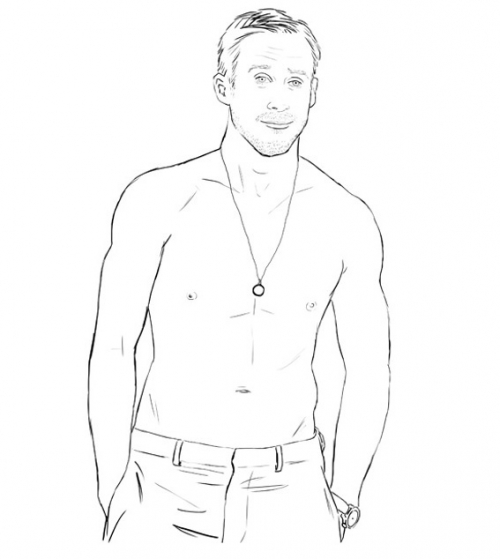
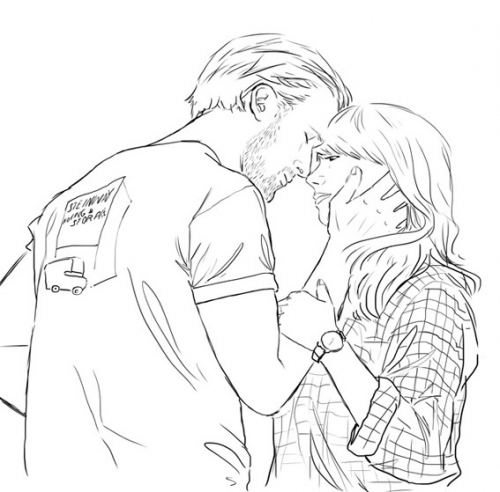


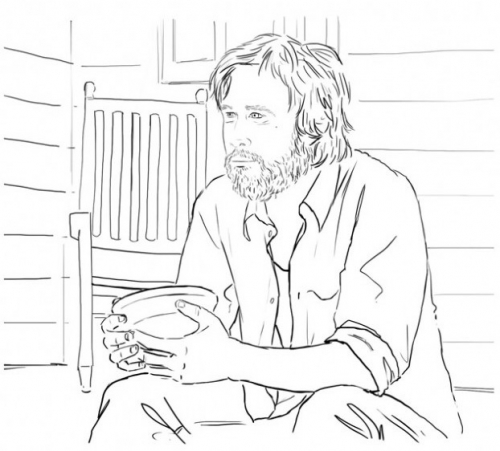

Also: Feminist Ryan Gosling, "Hey Girl" Flexi Journal
Teacher wears same outfit in yearbook photos for 40 years
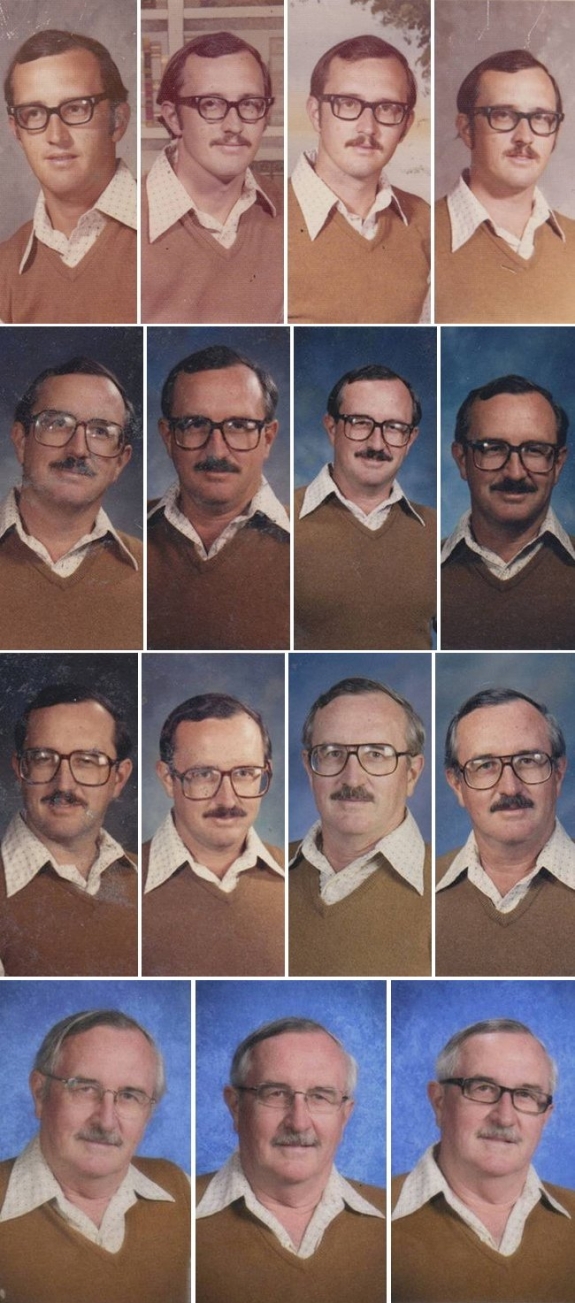
Dale Irby is a school teacher from Dallas, who has been receiving some viral attention lately for wearing the same polyester shirt and vest for his yearbook photo for all 40 years of his career.
Irby said what started off as an accident became a running joke that never got old.News.com.au
A sports teacher, Irby usually wore athletic clothes suitable for exercise.
He picked the vest and shirt combination in order to look presentable for his first yearbook photo in 1973 and accidentally repeated the outfit the following year.
"I was so embarrassed when I got the school pictures back that second year and realised I had worn the very same thing as the first year,” he told the Dallas Morning News.
Irby's wife, Cathy dared him to repeat the outfit for a third year. In the spirit of one-upmanship Irby continued the joke for a further five years, after which he thought "why stop?"
Man wears head cage in an attempt to quit smoking

Desperate times call for desperate measures: Turkish man wears helmet-like head cage to quit smoking:
In an unusual bid to quit smoking, a 42-year-old man in the western province of Kütahya has begun wearing a helmet-like wire cage on his head, locked on two sides.
İbrahim Yücel, who is trying to kick a 26-year habit of smoking two packets of cigarettes per day, gives the keys of his head cage to his wife and daughter when he leaves home every day. In this way, he is unable to open the cage to smoke during the day, even if he craves a smoke.
He says he was inspired to create the helmet-like head cage by observing motorcycle helmets, after trying without success to quit smoking several times in the past. His father died of lung cancer caused by smoking some years ago.
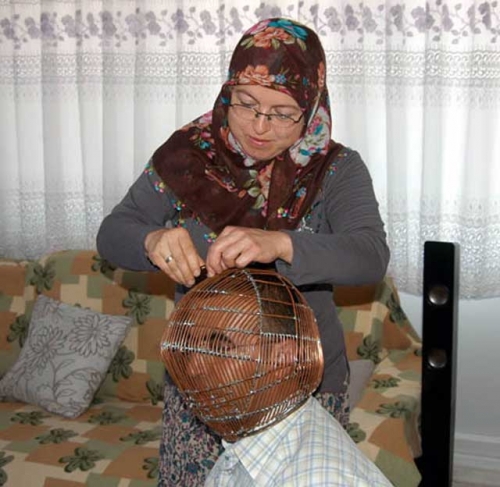
Video | via
Star Wars, written by William Shakespeare

From author Ian Doescher: Star Wars - Episode IV: A New Hope written as if it were a play by William Shakespeare:
Return once more to a galaxy far, far away with this sublime retelling of George Lucas’s epic Star Wars in the style of the immortal Bard of Avon. The saga of a wise (Jedi) knight and an evil (Sith) lord, of a beautiful princess held captive and a young hero coming of age, Star Wars abounds with all the valor and villainy of Shakespeare’s greatest plays. ’Tis a tale told by fretful droids, full of faithful Wookiees and fearstome Stormtroopers, signifying...pretty much everything.William Shakespeare's Star Wars
Reimagined in glorious iambic pentameter—and complete with twenty gorgeous Elizabethan illustrations--William Shakespeare’s Star Wars will astound and edify Rebels and Imperials alike. Zounds! This is the book you’re looking for.


Read more from the book
Previously: The Big Lebowski written by William Shakespeare
Things dogs teach us
HooplaHaChannel | via
Stuff my Guinea pig does
Sharpening his pencil:
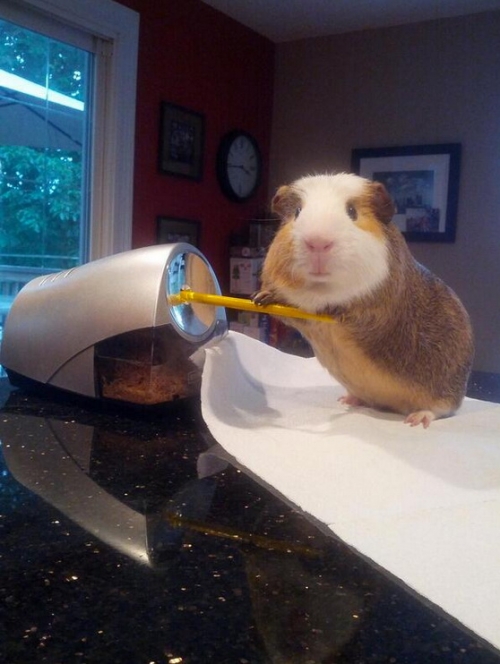
Watering the flowers:
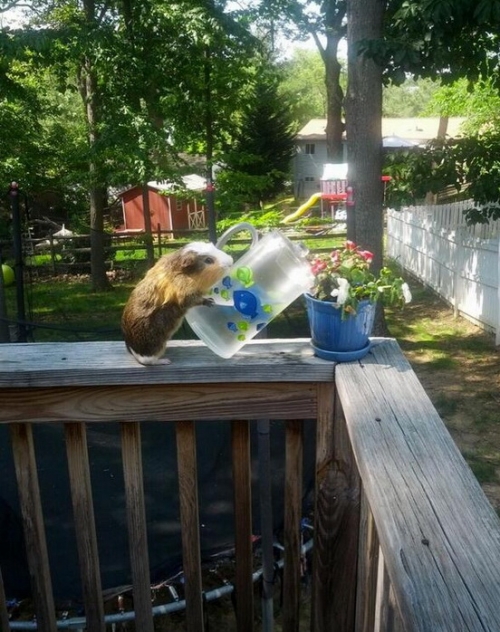
Lifting wights:
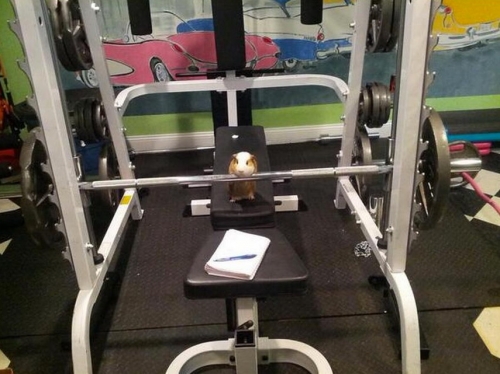
More - after the jumpMowing the lawn:
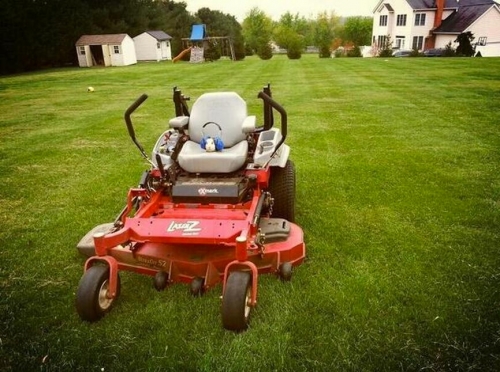
Making stew:

Eating ice cream:

Walking the dog:
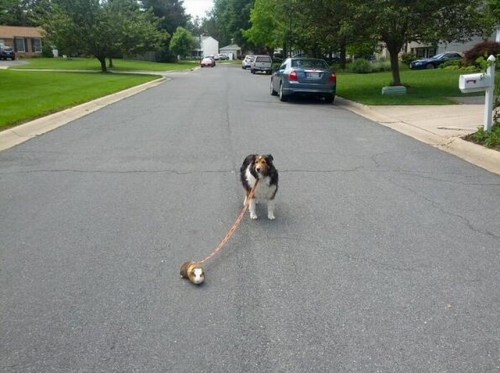
Riding a chicken:

Washing the car:

Update: @guineadoinstuff
Riot Raki

NYC-based ad creatives Manuel Urbanke and Maximilian Hoch imagine a Trurkish spirit perfectly suited for the current times.



Cargo Collective | via
Interview with author of "The First 20 Hours: How to Learn Anything... Fast" (plus excerpt)
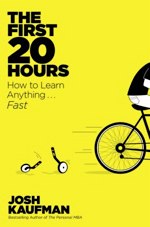 Josh Kaufman is the author of the new book, The First 20 Hours: How to Learn Anything... Fast. I interviewed him about the art of rapid skill acquisition.
Josh Kaufman is the author of the new book, The First 20 Hours: How to Learn Anything... Fast. I interviewed him about the art of rapid skill acquisition.
Do you find yourself staying interested in most of the things you start? If not, what has held your interest for many years?
I'm curious about many – often wildly different – things, so I like to explore new projects and skills as often as I can. I usually find something valuable enough in my early exploration to keep at it: I've been doing research on general business principles for over eight years now. My early interest in the web lead to my first career out of school, as well as my current work as an author / researcher / entrepreneur, which requires me to be a jack-of-all-trades. I just learned how to program in Ruby, so I'm coding quite a bit. I love the process of making something from nothing, and learning as I build.
In terms of hobbies, music is a long-standing interest. At one point, I was in every music group my small high school offered. When I went to college, I put music aside, and I'm just getting back to it. I recently learned how to play the ukulele, and I'm enjoying doing things like using a piezo pickup and amp modeling software to make it sound like an electric guitar. Fun times.
My primary challenges are available time and energy. Now that I'm running a business in addition to taking care of my family (my wife and I have a two year old daughter, plus a new baby on the way), I don't have a ton of leisure time, so I try to focus my business on making new things that are helpful to other people, and my personal projects on things that I can work on in small chunks of spare time.
Can you give some general tips or rules for learning a new skill quickly?
Rapid skill acquisition, as a process, is quite simple: Decide what you want, then break complex skills down into smaller sub-skills. Do a bit of research to identify the sub-skills you’ll use most often, then practice those first. Remove unnecessary barriers to practice by changing your environment to make it easy to avoid distractions. Pre-commit to completing at least 20 hours of practice to push through early frustrations and avoid giving up before you see results.
Then, sit down and practice. No practice, no skill acquisition.
I've used this method to learn everything from motor skills (yoga, touch typing, windsurfing, ukulele) to cognitive skills (playing Go, programming). The practice techniques are often different, but the core method is the same.
The 20-hour precommitment, in my experience, is key. The first few hours of practice are always frustrating. Deciding to invest a certain amount of time before you begin makes it much easier to persist long enough to see improvement.
What do you plan to learn next, and why?
I just wrapped up learning cinematography to shoot a trailer for the book, which was fun, and saved me at least $20,000 vs. hiring professionals. Now that I have my own gear and know how to use it, I'm planning a new business project that involves video.
I've always wanted to learn shorthand, so I'm exploring a system called Yublin. The process will look a lot like learning a new language: memorizing the most common words first, and focusing on translating common ideas from English to Yublin, and vice versa.
The nice thing about the method I teach in The First 20 Hours is that you can layer it. If you want to improve beyond the level of skill you acquire in your first 20 hours of practice, you can use the same method to put in another 20, and improve even more.
I'm still playing the ukulele in the evenings, and I recently picked up a Boomerang III phase looper so I can play complex songs by myself. I have a few new programming projects in the works to simplify my business operations. Now that it's windsurfing season again, I'm working on hydroplaning and rigging a larger sail.
There's never a lack of new things to learn. I wouldn't have it any other way.
Excerpt from The First 20 Hours, by Josh Kaufman
Do you feel like you’d need 36 or 48 hours in a day to finally sit down and learn a useful or interesting new skill?
There’s an old cliché: “work smarter, not harder.” As it turns out, the process of skill acquisition is not really about raw the raw hours you put in... it’s what you put *into* those hours.
Damn You, Malcolm Gladwell
In 2008, Malcolm Gladwell wrote a book titled Outliers: The Story of Success. In it, he set about trying to explain what makes certain people more successful than others.
One of the ideas Gladwell mentions over and over again is what he calls the “10,000 hour rule.” Based on research conducted by Dr. K. Anders Ericsson of Florida State University, expert-level performance takes, on average, 10,000 hours of deliberate practice to achieve.
10,000 hours equals eight hours of deliberate practice every day for approximately three and a half years, with no breaks, no weekends, and no vacations. Assuming a standard 260 working days a year with no distractions, that’s a full-time job for almost five years, assuming you spend 100% of that time exerting 100% of your energy and effort.
In practice, this level of focused attention is extremely taxing: even world-class performers in an ultra-competitive field (like violin performance) can only muster the energy for approximately three and a half hours of deliberate practice every day. That means it can take a decade or more to develop a skill to mastery.
In essence, if you want to master a new skill, Dr. Ericsson’s research indicates you’re in for a very long haul. Being the best in the world at anything, even for a little while, requires years of relentless practice. If you’re not willing to put in the time and effort, you’ll be overshadowed by those who do.
...
As if learning a new skill wasn’t hard enough. Not only do you have to make time for practice... now you have to put in 10,000 hours? Most of us count ourselves lucky if we can set aside a few hours a week.
Why bother at all if it takes so long to be good?
Look Upon My Works, Ye Mighty, and Despair!
Before you give up all hope, consider this.
There’s an element of Dr. Ericsson’s research that’s very easy to overlook: it’s a study of expert-level performance. If you’re looking to become the next Tiger Woods, you’ll probably need to spend at least 10,000 hours deliberately and systematically practicing every aspect of golf. Almost every single professional golfer began playing at a very young age, and has been practicing non-stop for at least seven years. Developing world-class mastery takes time.
On the other hand, what if winning the US Open isn’t your goal? What if you just want to be good enough at golf that you’re able to play decently, not embarrass yourself, have a good time, and maybe have a fighting chance to win your local country club tournament?
That’s another matter entirely.
World-class mastery may take 10,000 hours of focused effort, but developing the capacity to perform well enough for your own purposes usually requires far less of an investment.
That’s not to discount the value of what Ericsson calls “deliberate practice”: intentionally and systematically practicing in order to improve a skill.
Deliberate practice is the heart of skill acquisition. The question is *how much* deliberate practice is required to reach your goal.
Usually, it’s much less than you think.
Quality, Not Quantity
Embracing the idea of sufficiency is the key to rapid skill acquisition. In this book, we’re going to discuss developing capacity, not world-class mastery. We’re going to tackle the steep part of the learning curve and ascend it as quickly as possible.
Leave the 10,000 hours to the pros. We’re going to start with 20 hours of concentrated, intelligent, focused effort.
We’re shooting for the results we value with 0.2% of the effort. You may never win a gold medal, but you’ll reap the rewards you care about in far less time.
What is Rapid Skill Acquisition?
Rapid skill acquisition is a process: a way of breaking down the skill you’re trying to acquire into the smallest possible parts, identifying which of those parts are most important, then deliberately practicing those elements first. It’s as simple as that.
Rapid skill acquisition has four major steps:
- Deconstructing the skill into the smallest possible sub-skills;
- Learning enough about each sub-skill to be able to practice intelligently and self-correct during practice;
- Removing physical, mental, and emotional barriers that get in the way of practice;
- Practicing the most important sub-skills for at least 20 hours.
That’s it. Rapid skill acquisition is not rocket science. You simply decide what to practice, figure out the best way to practice, make time to practice, then practice until you reach your target level of performance.
There’s no magic to it: just smart, strategic effort invested in something you care about. With a little preparation, you’ll acquire new skills rapidly, with less effort.
...
The goal of this book is to help you acquire new skills in hours, days, or weeks instead of years. In my experience, it takes around 20 hours of deliberate practice to achieve substantial results.
The amount of time it’ll take you to acquire a new skill is largely a matter of (1) how much concentrated time you’re willing to invest in deliberate practice and smart experimentation and (2) how good you need to become to perform at the level you desire.
...
The only time you can choose to practice is today.
Not tomorrow. Not next week. Not next month or next year. Today.
When you wake up in the morning, you have a choice. You can choose to invest your time acquiring skills that will make your life more successful, enjoyable, and rewarding... or you can squander your time doing something else.
What will you do today?
The First 20 Hours: How to Learn Anything... Fast
Sneak Attack
10/10 Wizards Agree
Submitted by: Unknown









